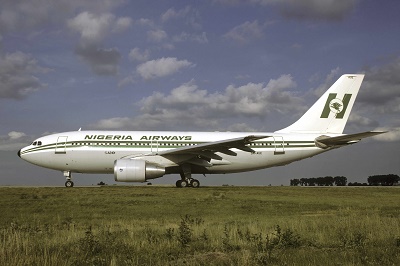Unbundling the Nigeria- China Agreement (1)

President Muhammadu Buhari has expressed satisfaction with the outcome of his working visit to China, which has yielded additional investments in Nigeria exceeding $6 billion.
President Buhari believes that the several agreements concluded with the Chinese during the visit will have a huge and positive impact on key sectors of the Nigerian economy including power, solid minerals, agriculture, housing and rail transportation.
Buhari has directed that technical committees be immediately established to finalize discussions on projects such as; the new joint Nigeria/China rail, power, manufacturing, agricultural and solid mineral projects.
While the technical committees have been asked to conclude their assignments before the end of next month, one begins to wonder how much the Chinese intend to benefit from the agreement especially as the $6 billion loan deal was done in dollars and not yuan.
Nigeria also agreed a currency swap deal with China as it looks for ways to shore up the ailing naira and fund a record budget deficit, possibly by issuing yuan-denominated bonds in China. The rhetorical question is- why wasn’t the deal signed in yuan?
It is an open secret that the dollar has been very unfriendly to naira and there is a high tendency that in few years the $6billion may rise to outrageous figures. The nation is facing its worst economic crisis in decades as sinking oil prices eat into its foreign reserves and the naira weakens against the dollar and other currencies.
A Professor of Economics at the Olabisi Onabanjo University, Sherriffdeen Tella, said the currency swap deal was good to the extent of the amount of commodities Nigeria had to export to China.
Unless Nigeria has substantial export to China, ease of payment of trade deals between both nations may not be enough reason to ink such a deal, he said.
Tella stated, “China must be encouraged to buy our crude oil, gas and other products that we may have for exports. Otherwise, we will soon run out of renminbi if it is being demanded only for the purpose of importing commodities from China.
“We have to encourage China to buy our products so that we can have enough renminbi in our reserves.”
The International Monetary Fund had in November agreed to add the Chinese yuan to its reserve currency basket.
The decision, which marked another step in China’s global economic emergence, came after the IMF evaluated the Asian nation’s standing as an exporter and the yuan’s role as a “freely usable” currency.
In the power sector, North South Power Company Limited and Sinohydro Corporation Limited signed an agreement valued at $478,657,941.28 for the construction of 300 Mega Watts solar power in Shiriro, Niger State.
In the solid minerals sector, Granite and Marble Nigeria Limited and Shanghai Shibang signed an agreement valued at $55 million for the construction and equipping of granite mining plant in Nigeria.
A total of $1 billion is to be invested in the development of a Greenfield expressway for Abuja-Ibadan-Lagos under an agreement reached by the Infrastructure Bank and Sinohydro Corporation Limited.
For the housing sector, both companies also sealed a $250 million deal to develop an ultra modern 27-storey high rise complex and a $2.5 billion agreement for the development of the Lagos Metro Rail Transit Red Line project.
Other agreements announced and signed during the visit include a $1 billion for the establishment of a Hi-tech industrial park in Ogun-Guangdong Free Trade Zone in Igbesa, Ogun State.
Furthermore, the Ogun-Guangdong Free Trade Zone and CNG (Nigeria) Investment Limited also signed an agreement valued at $200 million for the construction of two 500MT/day float gas facilities.
An agreement valued at $363 million for the establishment of a comprehensive farm and downstream industrial park in Kogi state was also announced at the Nigeria-China business forum.
Other agreements undergoing negotiations include a $500 million project for the provision of television broadcast equipment and a $25 million facility for production of pre-paid smart meters between Mojec International Limited and Microstar Company Limited.
About 100 Nigerian businesses and 300 Chinese firms participated in the Nigeria-China business forum which took place a day after President Buhari began his visit to China.








